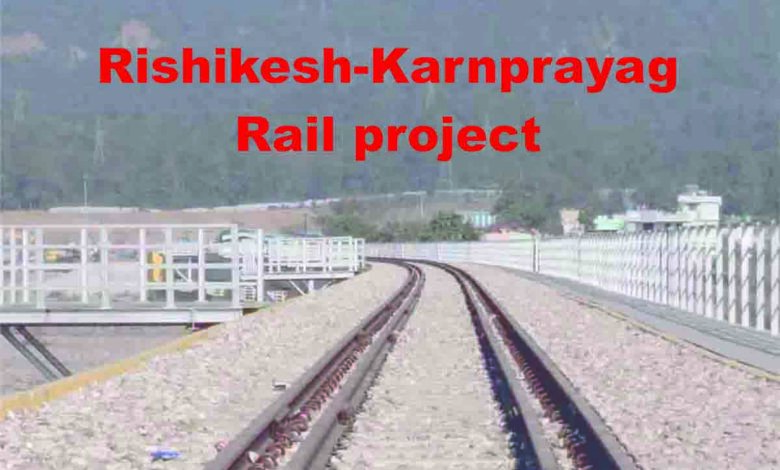Rishikesh-Karnprayag rail project under scrutiny after Silkyara mishap

Tunnels constitute 85 per cent part of the 125 km long railway project
Tuesday, 28 November 2023 | GAJENDRA SINGH NEGI | DEHRADUN
The tunnel collapse incident in Silkyara, Uttarkashi in which 41 labourers are trapped for the last 16 days has raised serious concerns about other infrastructural projects in Uttarakhand involving excavation of tunnels. The ambitious Rishikesh-Karnprayag rail project in particular, which passes through the fragile and fractured geological sections of Himalayas, has come under scanner after the Silkyara incident. Experts are of the opinion that the project which is currently underway to connect Yognagari Rishikesh railway station with Karnprayag in Chamoli district that involves laying down 125.5 kilometre long railway line should be thoroughly assessed. Concerns are being raised about the safety of the project since it envisages digging of a total of 16 tunnels through the fragile and unstable terrain. About 105 kilometre-long stretch of the project comprises tunnels. The 14.5 kilometre long Janasu-Devprayag Saur tunnel is the longest tunnel of the project.
The experts point out that since the rail project passes through a fragile, tectonically unstable area having many shear zones it should be thoroughly examined for the safety protocols.
Incidentally, the Navayuga engineering company limited- entrusted with the task of digging the 4.5 kilometre long Silkyara- Badkot double lane tunnel by the National Highways and Infrastructure Development Corporation Limited (NHIDCL)- is also involved in the Rishikesh-Karnprayag railway project. This company has come under cloud after the absence of the mandatory safety tunnel or adit tunnel in Silkyara which would have provided a safe exit to the trapped labourers.
Noted geologist and former head of department of Geology, HNB Garhwal university, YP Sundariyal told The Pioneer that phyllite, schist and siltstones are the major rocks in the Silkyara area. He said that since the area is close to the Main Central Thrust (MCT), the rocks are highly fractured and sheared. It is pertinent to mention here that the Indian plate is getting thrust under the Eurasian plate at MCT due to which the surrounding area is highly fractured and prone to earthquakes. Sundariyal added that it is very obvious that the necessary safety protocols needed for digging a tunnel were not followed in Silkyara. He said that all other projects, including the ongoing Rishikesh-Karnprayag rail project, should be scrutinised for the safety measures undertaken.
Professor at Veer Chandra Singh Garhwali University of Horticulture and Forestry, SP Sati said that utmost care should be exercised in selection and execution of development projects in the sensitive Himalayan range. He added that the safety audit of the Rishikesh-Karnprayag rail line should also be done.
When contacted the general manager (Geology) of the Rail Vikas Nigam Limited (RVNL) Vijay Dangwal told this correspondent that all the norms had been adhered to in the Rishikesh- Karnprayag rail line and that there has been no compromise on quality. He also claimed that the work is underway in the project under strict supervision of experts. Dangwal said that 85 per cent of the total length of the project passes through tunnels and 70 per cent work on excavation of tunnels has been completed in strict adherence to the safety protocols.





